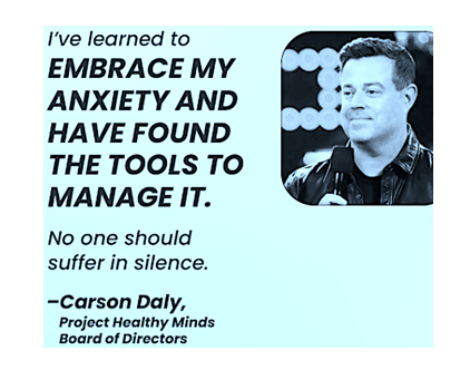Watching a loved one suffer through mental health challenges can be just as painful as suffering through those challenges yourself. It’s hard to know how to help—which is usually defeating and anxiety-inducing, in equal measure. Feeling out of control, especially when it comes to a loved one’s wellbeing, is understandably unsettling.
The truth is, mental health issues are highly individualized, and there’s no one-size-fits-all solution for being a supportive friend or family member. That being said, the more you understand your loved one’s mental health status and what they might be going through, the better you can be there for them.
Get educated
In order to get a clear picture of your loved one’s mental health status, it’s helpful to gain some insight into common mental health conditions, including anxiety, depression, eating disorders, bipolar disorder, schizophrenia and post-traumatic stress disorder. The more information you have, the better-equipped you will be to care for someone who is suffering.
Be aware
Likewise, once you know more general information about mental health conditions, you’ll innately be more adept at spotting warning signs.
One of the most important things you can do to support a loved one struggling with mental health is to be aware, and be on the lookout for any clear warning signs. Stark lifestyle changes—like appetite fluctuations, sleep shifts, major mood swings or difficulty functioning—are all things to take note of.
The key is to address problems from the get-go, as mental health challenges tend to be exacerbated if left untreated. The more alert you are, the more likely that you’ll be able to help your loved one before it becomes harder to do so.
Talk it out
If you do notice a change in behaviour, you should always try to communicate openly with your loved one. Naturally, it’s not going to be an easy conversation—but it will undoubtedly be one worth having.
Beyond expressing your own concern, ensure you’re actively listening. The last thing your loved one wants is to feel like they’re being berated or punished for the place they’re in. Make them feel safe sharing information with you, and do your best to listen closely rather than probe.
In order to make a person feel comfortable, it’s best to use “I” statements, such as “I’m worried about you,” rather than “You” statements, such as “You need help.” This will create a reassuring environment, in which it’s clear that you care for them and aren’t there to point fingers.
If your loved one is unwilling to open up to you—which is entirely normal—try encouraging them to speak with a mental health professional. Reinforce that getting help is an indication of strength rather than weakness. If they agree, help them by scouting resources or securing an appointment.
Sometimes, the logistical challenges that come along with seeking medical support can deter some patients from getting help. If you remove as many of those barriers as you can, they’ll be more inclined to follow through with talking to a professional.
Be there
Simply showing up and being present carries a lot of weight, and can be transformational for someone suffering from mental illness. Often, people battling mental health challenges feel overwhelmed and out of control, inhibiting them from completing mundane tasks, like household chores, making dinner, and grocery shopping.
The more they can lean on others for support—including with childcare needs—the more they can focus on getting better. However, you must strike a healthy balance to ensure you aren’t taking on all the responsibility.
Being present can come in many forms. If you have too much going on in your own life to actively involve yourself in your loved one’s daily tasks, simply checking in with them through a friendly phone call or text message on a regular basis can make a bigger difference than you realize. Loneliness is commonly associated with mental health challenges, and ensuring your loved one knows you’re there for them will help mitigate those negative feelings.
Practice patience
Mental health can be a bit of a rollercoaster, with promising ups and unforeseen downs. The path to a healthier state of mind is rarely—if ever—easy, and it comes with hurdles along the way. Staying patient when those obstacles inevitably arise is an essential component of being a strong source of support. Ride the waves as best you can.
Support yourself
Above all, you must ensure you are looking after yourself. Taking care of a loved one comes with a slew of emotions—from guilt to grief, anxiety to anger—and it’s critical to be able to first work through those feelings. Set aside time for yourself, whether that means being with friends, engaging in physical activities, creating art, or doing whatever puts your mind at ease.
As a primary support system to someone, it’s very easy to burn out, especially when you have other obligations. It’s important to seek help if you find your own mental health slipping. Remember: you can’t support someone else if you aren’t supporting yourself.



